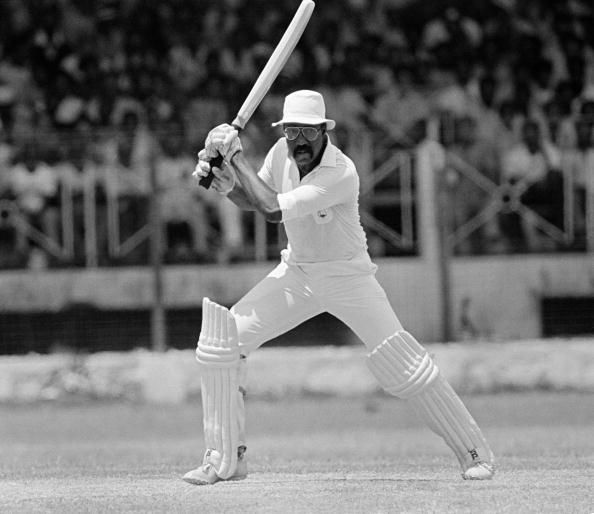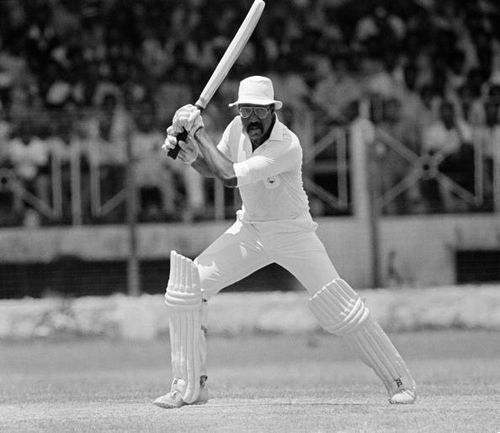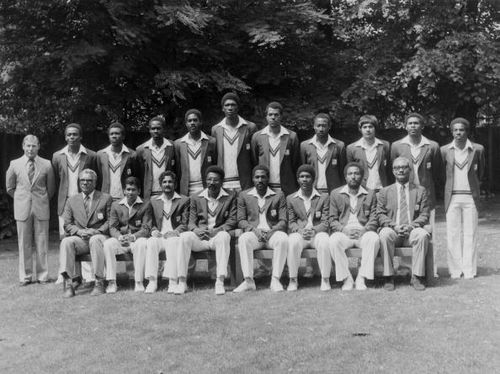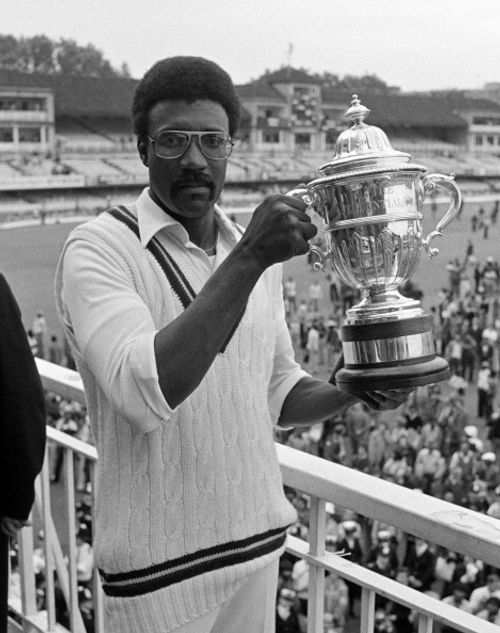
Clive Lloyd – Leader at First Sight

One has to be special to captain a team that boasted of names like Greenidge, Haynes, Richards, Garner, Marshall, Holding, Croft and Roberts. One has to be sublimely special to be acknowledged for astute cricketing sense and leadership skills even while captaining a team of such talented individuals. Connoisseurs of cricket, and admirers of Calypso cricket in particular, have always held Clive Hubert Lloyd in very high regard. He is one of the greats of the game – about that there is no doubt. Saying that he has contributed more to the cause of West Indies cricket than anyone else would be stating the obvious. The 6’5” giant of West Indies cricket, a colossal of the modern game, staged the great renaissance of the West Indies team. He is remembered for being a leader of men more than his exploits on the cricket field with a very heavy bat, the latter by no stretch of imagination being anything less than dazzlingly substantial. With a distinct authoritative style and a charisma that has appealed to cricketers across the world alike, Lloyd has been a darling to many, except probably in the one place that matters now – in the elite circles of West Indies cricket; that is the irony.
Like Graham Gooch for England, Lloyd was earmarked as the supremo of West Indies cricket from a very early stage. Nevertheless, in a recent development, Lloyd’s nomination for board presidency hasn’t been supported; instead, administrators who can hardly any match Lloyd’s understanding of the game have been favoured. Lloyd couldn’t muster the backing of even two full members required for a nomination. The snub coupled with the fact that it isn’t his first attempt at the board presidency indicates to certain extent, if not completely, the decadence West Indies cricket has witnessed over the years, a period during which cricket has rarely found itself as the first priority. Lloyd had failed in his first bid earlier owing to his residence outside the West Indies. From being called emotionally distant and moody with troubled domestic life at times, to doubts over his motivations as he dabbles in multiple positions of power at the WICB and ICC, Lloyd isn’t a stranger to controversies, accusations or speculations. Interestingly, Lloyd was also caught up in the wrong place at the wrong time – in the tussle between the all-powerful West Indies Cricket Board and the Interim Management Committee formed by Guyana, the country to which Clive Lloyd belongs. Choosing the IMC over the non-member directorial position at the WICB has cost Lloyd a lot more than he would have anticipated.
The first brush of the present generation with Lloyd’s authoritativeness can be dated back to the 1996 World Cup semi-final which was disrupted by the Eden Gardens’ crowd when India was tottering at 120/8. In an unforeseen move, Clive Lloyd, then the ICC match referee, abandoned the match and handed the win to Sri Lanka. Very few referees have dealt with situations with such an air of decisiveness. Speaking about the infamous Sarwan – McGrath altercation that took place during a legendary and record-breaking West Indies chase, Lloyd pointed out how the incident could have been avoided. Lloyd, with his keen perspective and observations, cited how the tension had been building up during the series and during the match. He was of the opinion that the match referee, by alerting the umpires to stay on top, could have ensured that the altercation didn’t turn out to be what many feel was a black mark on the game’s reputation.
Inspite of being known for introducing intimidating tactics with his nuclear arsenal of pace bowlers, Lloyd has unequivocally criticised the presence of sledging in cricket. It comes as no wonder then, that West Indies fast bowling greats like Holding let their ball do all the talking. As a captain, Lloyd had brilliant individuals who were prone to temptations and upswings that turned them into entertainers instead of match-winners. By introducing mechanisms like team dinners night before the match day, he ensured they lived and breathed cricket on the job and knew the opposition in and out. That definitely sowed the seeds for the modern day’s team management mantras. We get to understand some exciting insights in a wonderful interview of Viv Richards by Nasser Hussain. Viv was cricket’s original master blaster and the man who had ‘the swagger that intimidated the most intimidating of pace bowlers’. But all he has for Lloyd is respect and admiration. To quote Viv, “You hear people say it was easy for Clive as captain because he had great players, but that’s bulls**t. We never started out as a great team. There were a lot of individuals who hadn’t quite done it and we had to have a leader. Clive was it. I looked up to him.” Viv also reminisces in the same interview about how, after being thrashed 5-1 by Australia down under in the 1975-76 season, Lloyd envisaged a future for West Indies with four fast bowlers just as fearsome as the ones they faced down under in Thomson and Lillee. This ability to admit a fault-line and go about repairing it and do it with aplomb, building a world-class team in the process, is what makes Lloyd such a great man.

A bespectacled cricketer with stooped shoulders, Lloyd captained West Indies to three ODI World Cup finals, winning two of them, a feat even the great Ricky Ponting hasn’t been able to emulate. What sets him apart, even more importantly, is that he was a proven big match player, both at county and international level. His swashbuckling century in the inaugural World Cup final against Australia, resurrecting his team from 50/3 to 291, is counted amongst the finest ODI innings of all time. He coupled that batting performance with a wicket off his medium-pace bowling in what was the longest game played at Lord’s. Lloyd often played match-winning knocks for Lancashire in tournament finals; he was a true crisis man who performed relentlessly. As a man who debuted in 1966 under the greatest cricketer of all time, Sir Garfield Sobers, winning the match alongside his captain in the final innings, Clive Lloyd impressed everyone from the very first sight, scoring two half centuries against India at Wankhede.

The left-handed great, arguably West Indies’ best captain since the great Frank Worrell himself, Clive Lloyd led cricket’s most flamboyant set of ‘Invincibles’. It was a team that boasted of a 26-game streak without losing, including 11 consecutive wins, all against mighty sides. Lloyd averaged nearly 47 and 40 in Tests and ODIs respectively. An ambidextrous man, Clive Lloyd writes with his right hand but batted left-handed, possessing a right-hander’s brutishness more than the left-hander’s elegance. A highly prized feather in his cap was the famous ‘Blackwash’, when West Indies thrashed England 5 -0 in 1984. Lloyd finished his career on a high, winning against Australia 3 -1 in the same season, with batting averages of 67 and 51 against the two sides. Interestingly, Lloyd, the cricketer, has always lived under the shadow of Lloyd, the leader; not just a captain, mind you, but a leader. For an owner of the proudest and most illustrious West Indies cricket resume, it is strange that Lloyd still doesn’t have the support needed to take up the top job in West Indies cricket – a fact that is rued gloomily by one of the ‘Fearsome Four’ who played under him, Andy Roberts. Very few remember that Lloyd had, at one point, thrown away a lucrative career at the ICC for the cause of West Indies cricket. Irrespective of the vaunted monetary benefits, which at best could just be speculations, it takes a passionate man to sacrifice a sparkling career as ICC match official to manage the West Indies team mired in controversies, politics and the curse of limited resources. His unsuccessful stint as manager and coach tarnished his unblemished credentials to a certain extent, but that could also be due to the expectations that his broad shoulders have always persuaded out of people. Clive Lloyd not only has expertise in cricket but also in management, thanks to the position he held as brand manager of Ten Sports. He has also operated as the Chairman of the ICC Cricket Committee. A vociferous supporter of DRS, Clive Lloyd has hoped, publicly, that India sees sense in it and supports the use of technology, criticising the unequal standards under which cricket is played across the globe.
Adorably nicknamed ‘Supercat’, Clive Lloyd will easily walk into the pantheon of sporting greats, leave alone Cricket’s Hall of Fame. Much as he had allowed his bat to do the talking, especially during moments that mattered, he stood out amongst giants of the game as a colossal – no ordinary feat in itself. He did it, especially when the whole world was out to get his team, a team that he moulded from a raw bunch of whole-hearted and high-spirited individuals into a hunting pack of high-willed and high-skilled professionals. He made them taste victory and once they smelt it under his reign, there was no stopping them. West Indies cricket is at a juncture where it could go from strength to strength or slip downhill yet again.
Lloyd, the man of unequalled cricketing nous, the man who understands performers just as well as he understands the exotic Calypso flair, the man who can dominate and decimate opponents and a man who has passion for a cause, was the one they needed at the helm instead of petty board affairs, corruption and revenge tales. He is a trier and I doubt if he will ever give up on what means something to him. It comes as no wonder that his manifesto to convince the member boards to support his nomination talked about ‘a second growth curve’ for West Indies. It is obviously a feeling strong enough for him to quote Churchill’s famous ‘figuratively tapped’ remarks on his manifesto. No matter where the career of the 68-year-old goes from here, he is a man who has found it hard to fail as a leader, who has always been the ‘one who never fell’, the one who always got what he set out to get, in cricket and outside it. Generations of cricket lovers will adore his gift to cricket, the art of leadership that forges a dream team in any game.